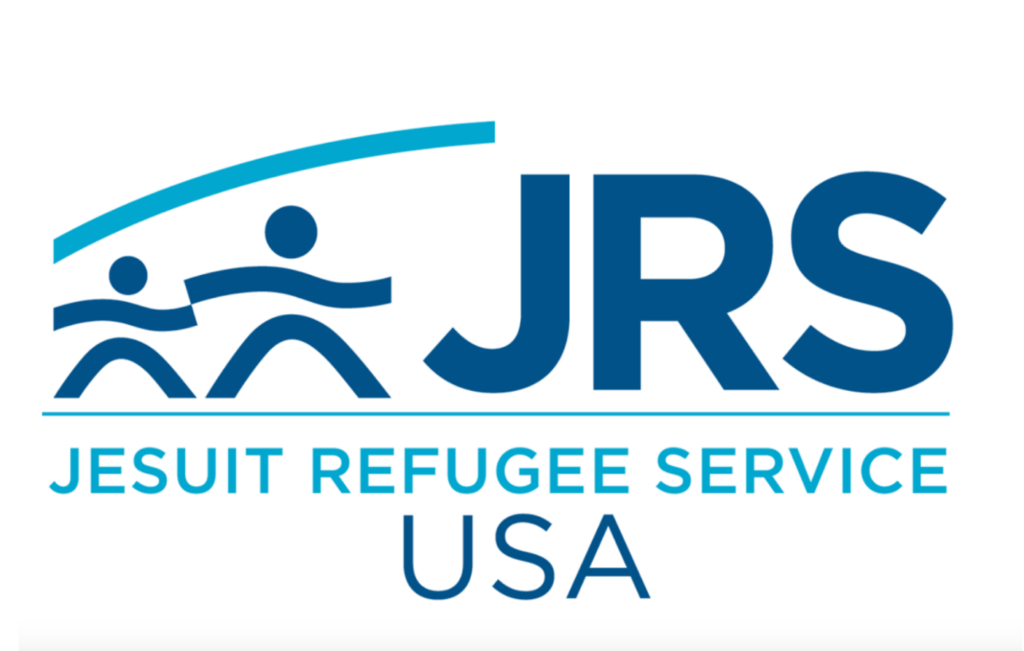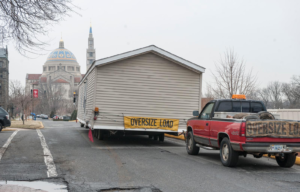Let’s Discuss the Northern Triangle: JRS Advocacy Director Meets with CUA Politics Students

Image Courtesy of Jesuit Refugee Services USA
By Justin Lamoureux
Students in Dr. Love’s Global Issues (POL 307) class recently heard from a prominent voice in the humanitarian community. Giulia McPherson is the advocacy director of Jesuit Refugee Services USA: a nongovernmental organization founded by the Society of Jesus, and currently operating across fifty different countries. Speaking to the class on a Zoom video call, McPherson talked extensively about efforts made by the organization to meet the educational, health, and social needs of almost one million refugees every year. I, along with classmates Brian Melendez and Keenan Green, facilitated the engagement to help start a constructive dialogue on their issue of focus: humanitarian issues plaguing the so-called “Northern Triangle” in Central America.
Few Americans would question the relevance of migration as a political (or a humanitarian) issue. It seems like every day, news headlines feature stories about the increased global prevalence of migration, or the humanitarian crises serving to inspire such trends.
It’s hardly a secret that in recent years, the scale of migration to the United States from Central America has seen a dramatic uptick. Between 1990 and 2020, the number of migrants hailing from Central American countries increased by 137%. Two of the countries that have seen the greatest surge in external migration are Honduras (530%) and Guatemala (293%): both of which are considered part of the Northern Triangle. The third state in this particular region – El Salvador – has likewise seen a much smaller (but nevertheless substantial) rise of 29% in the last three decades.
In addition to a broad overview of the humanitarian work routinely completed by Jesuit Refugee Services, McPherson provided students with a glimpse into the ongoing crises that have led to greater migration from the Northern Triangle. Besides economic reasons, push factors in recent years have included gang violence and recruitment, gender-based violence, a lack of economic opportunity, environmental challenges (i.e., climate change); and the diminished rule of law.
McPherson also offered a more detailed look at how the demographics of migrants have shifted in recent years. In 2022, for the first time in history, migrants from the Northern Triangle were outnumbered by Venezuelans, Cubans, and Nicaraguans at border crossings between the United States and Mexico. She also discussed United States asylum policies, and how these have evolved in recent decades. In particular, she explained how the migrant crisis has been exacerbated by the restrictive protocols adopted during the former Trump Administration and out of necessity during the COVID-19 pandemic. Interestingly, these new constraints have inclined many from the Northern Triangle to seek protection from other countries, including Mexico.
In addition to viewing the presentation, students were invited to complete a brief survey at the beginning and end of class to test their knowledge of the Northern Triangle, and issues facing this region. It soon became apparent that such an event resonated greatly with those in attendance. Junior history major Rebekah Rowe felt this event “did a great job of making the issue of immigration very tangible,” and appreciated that McPherson “was able to share personal stories of the struggles living in the Northern Triangle, as well as (of) trying to leave the area.” Indeed, Rowe left the classroom with a newfound sense of urgency to devote her own time “to assist those who moved to America, especially with the process of getting the legal documents becoming harder.”
Senior politics major Brian Melendez said he was inspired to spearhead this project by his personal connections to El Salvador: “I wanted to get a better understanding of the issues people face in this region that push them to leave their homeland, and the involvement of U.S. foreign policy in the region,” he said. Melendez also noted that in Global Issues, “we learned about the importance of Catholic organizations that provide relief services around the world.” For him, hearing about Jesuit Refugee Services–and Ms. McPherson’s efforts, in particular–“illustrated this point,” allowing him to “gain insights into the evolution of refugees, asylum seekers and migrants coming from Latin America.”
Following an extensive look into the humanitarian issues affecting the Northern Triangle–and what Jesuit Refugee Services, along with United States government policies, are doing to address them–McPherson closed out her presentation with a look at different ways audience members could become involved with her organization’s advocacy work. In particular, Catholic University students are encouraged to contact policymakers and implore them to support initiatives that would protect Ukrainian and Afghan refugees, and take action for displaced Venezuelans. Students should also promote refugee education, refugee resettlement, and prioritize mental health for refugees.
Above all, this event and the accompanying project represent a decisive call to action. The responsibility we have to become involved with efforts to facilitate meaningful change in the Northern Triangle – and provide assistance to migrants from this region – serves to epitomize two of our foremost identities. As Catholics, we have a moral obligation to “welcome the stranger” (Matthew 25:35), respect the dignity of all humans, and help innocent victims of persecution. The Catholic church likewise teaches that all people have the right to live a dignified life in their homeland: it only seems fitting that we support organizations who are committed to making this possible. As Americans, we have a fundamental calling to embrace the tired, the poor, and the huddled masses yearning to breathe free. Equally important is the need to ensure accountability for democratically elected officials who are tasked with creating government policies that subscribe to the Universal Declaration of Human Rights. In every sense of the word, this issue transcends all partisan labels – it is a humanitarian crisis that nobody can ignore.






